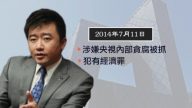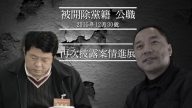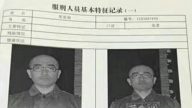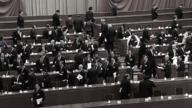【新唐人2013年12月20日讯】中共喉舌《央视》日前狠批网路“人肉搜索”是造成一名高中女生自尽的“罪魁祸首”,国信办新闻协调局局长更宣称:“‘人肉搜索’是一种网路暴力行为,是违法的。”但评论者批评中共变相保护贪官,拿普通人的隐私做幌子,混淆概念,抹黑网路上的“人肉搜索”。
12月初,广东一名高中女孩在购物时,被店主怀疑偷窃服装,店主发微博请求网友对她进行“人肉搜索”, 第二天,这名女孩从一座桥上跳下身亡。中共媒体说,由于不堪压力,这名女孩投河自尽。
16号中共喉舌《央视》的节目中猛批“人肉搜索”。17号,中共国信办新闻协调局局长刘正荣更宣称,“人肉搜索”是一种网路暴力行为,是不道德的,也是违法的。
刘正荣还恐吓对发起“人肉搜索”者,将依法追究责任。他还警告网站,发现“人肉搜索”行为,没有及时制止的也将追究责任。
大陆维权律师唐荆陵指出,网路“人肉搜索”主要是针对中共官员腐败行为,中共用普通人的隐私作为幌子,作为说辞,混淆概念,故意抹黑“人肉搜索”。
大陆维权律师唐荆陵:“中共官员它在谈的时候,显然回避了这个问题,回避‘人肉搜索’主要针对官员腐败。他谈什么隐私保护,但是他混淆了这个普通人的隐私保护、反对官员腐败、揭露官员丑闻之间的界线,这中间有着很明显不同的标准,不同的保护。”
南京“东南大学”法学院教授张赞宁不否认“人肉搜索”会有一些负面效应,但是对于不受监督的中共官场上的乱象,起到的却是积极的监督和揭露的作用 。
南京“东南大学”法学院教授张赞宁:“比如有些人做了坏事,做了些违法的事﹔比如有些官员嫖娼、包二奶﹔你比如那个著名的导演张艺谋有很多小老婆,而且生了很多孩子,如果不通过‘人肉搜索’的话,这些情况就不可能搞清楚,所以我认为它有积极作用的一面,可以遏制腐败,可以使公众了解一些社会真相。”
2008年,南京房管局局长周久耕事件,开启了大规模“网路反腐”先河,周久耕因为抽名烟、戴名表而被网民“人肉搜索”出连串贪腐丑闻,最后被双规。
近几年来,通过网路“人肉搜索”被曝光的中共贪官、淫官更是数不胜数。如重庆市北碚区区委书记雷政富事件;陕西表哥杨达才事件;上海五法官嫖娼事件;中共前编译局长衣俊卿事件;原发改委副主任刘铁男事件等。
唐荆陵:“实际上‘人肉搜索’主要是通过网路,来收集有关官员的丑闻或腐败的信息,这个根本是不违法的,完全是合法,而且是一个正当的、正义的行为,需要提倡和鼓舞的行为。”
唐荆陵指出,中国的法律对普通人的隐私是有法规保护的,但是对于官员们,或者涉及到官员、公众人物的丑闻,进行“人肉搜索”不违法。
张赞宁:“对于公众人物,我觉得没有隐私可言的,国外也是这种法律规定,只有对普通百姓的个人隐私是要保护的,对于官员们的个人隐私,它应该是暴露在光天化日之下,应当人民群众监督,所以我认为‘人肉搜索’只要用的好,就不会产生它所担心的那些负面效应。”
时政评论员汪北稷指出,中国的媒体受中共专制的控制,失去了监督官员的作用, 而西方的媒体作为第四权力的补充,对公众人物、官员等起到了无所不在的监督作用。
时政评论员汪北稷:“在西方就不会存在完全依靠网路去搜索,0139中国大陆的人民他们也没有选票,也没有它所谓的宪法给予的监督的权力,他们只能通过网路的方式来搜索,很多社会上发生的、被曝光的事情,当然还有许许多多没有曝光的事情。”
近年来,“人肉搜索”作为中国民众的网路反腐利器,致使众多中共官员的丑闻曝光而落马,中共在钳制“人肉搜索”方面也动作频频,如打击所谓“网路谣言”,让网路“大V”名人噤声,或大肆抓捕网路敢言人士,甚至出台恶法:网帖被转500次遭刑拘等。
采访编辑/李韵 后制/钟元
China Communist mouthpiece misleads Chinese Cyber Manhunt
Cyber Manhunt (or Human Flesh Search) is a popular
online activity in mainland China.
The Chinese Communist mouthpiece CCTV blames
the Cyber Manhunt for a high school girl’s suicide.
China’s state Internet regulator says the Cyber Manhunt
is Internet violent and illegal.
Commentators say the authorities try to mix up the concept
of the Cyber Manhunt with personal privacy and
smear its intention to cover up for the corrupt officials.
In early December, a Guangdong high school girl was
suspected of stealing in a clothing shop.
The owner issued a Cyber Manhunt for the girl.
The girl died from jumping off a bridge the next day.
The media says the girl drowned herself over unbearable
pressure.
On Dec. 16, one of CCTV’s programs
condemned the Cyber Manhunt.
On Dec. 17, China’s Internet Affairs Bureau deputy chief
Liu Zhengrong said the Cyber Manhunt is
an Internet violence and is immoral and illegal.
Liu Zhengrong warns that those who initiate Cyber Manhunts
will be subject to prosecution.
Websites are also held accountable for hosting such activities.
Human rights lawyer Tang Jingling says the Cyber Manhunt
originally targeted corrupt officials.
He says he regime deliberately mixes the concept
with personal privacy as a guise to confuse the public.
Tang Jingling, Human rights lawyer: “The Communist
officials clearly neglected the fact that the Cyber Manhunt
was targeting corruption.
Speaking of privacy, they cross the lines between the privacy,
and the opposing corruption and exposing scandals.
They are under different standards and protections."
Law school professor Zhang Zanning agrees with the cyber
hunt’s positive effect of whistleblowing on chaotic Communist
officials even though there is certain negative effect.
Zhang Zanning, Law School professor of Southeast University,
Nanjing: “For example, the illegal conducts of the officials
such as with prostitutes, mistresses; the famous director
Zhang Yimou’s many concubines and children, and so forth.
They were revealed only because of the cyber hunt.
I believe in the positive side of the activity to curb corruption
and reveal the truth to the public."
The Chinese Cyber Manhunt began when the Nanjing housing
official Zhou Jiugeng’s incident was exposed.
Zhou Jiugeng was sacked after the search on-line about his
behavior in smoking expensive cigarettes and
wearing name brand luxurious watches.
The Cyber Manhunt has exposed countless Communist officials
involved in corruption and scandals,
such as Chongqing Party Secretary Lei Zhengfu’s sex scandal,
Shaanxi official Yang Dacai’s 83 luxurious watches,
the prostitution case of five Shanghai judges’s,
Central compilation and translation bureau chief
Yi Junqing’s sex scandal, and former Reform Commission
deputy director Liu Tienan’s bribery case.
Tang Jingling: “In fact, the Cyber Manhunt collects
information on corrupt officials through the Internet.
This is not illegal, but a normal and righteous activity,
which ought to be encouraged."
Tang Jingling stresses personal privacy is protected by law.
However, cyber hunt against officials or public figures for
their scandals is not illegal.
Zhang Zanning: “I don’t think there is issue of privacy to a
public figure, and I believe other countries have similar rule.
Personal privacy of ordinary people needs to be protected.
The officials’ personal issues should be open to the public
and supervised by the people.
I believe with proper conduct, the Cyber Manhunt should not
generate any negative effects of concern."
Commentator Wang Beiji says China’s media is controlled by
the Communist dictatorship and have lost their role of
supervision, while the Western media, as a supplement to the
fourth power, have the ubiquitous supervisory function to
their public figures and officials.
Wang Beiji, commentator: “That’s why in the West, it would
not necessarily entirely rely on the Internet.
In China, people have no rights to vote, no supervision power
entitled by the constitution, but the Internet to search and
to expose.
Of course, there are many incidents not revealed yet."
The Cyber Manhunt has become the anti-corruption tool for
the Chinese.
Many Communist officials have been sacked due to the
Internet exposure.
The regime has also conducted multiple activities to restrict
the cyber hunt; cracking down on so-called Internet rumors,
silencing influential microbloggers,
arresting outspoken netizens,
and even issuing a law stating, that bloggers with posts
shared 500 times are subject to detention.
Interview & Edit/LiYun Post-Production/Zhong Yuan























